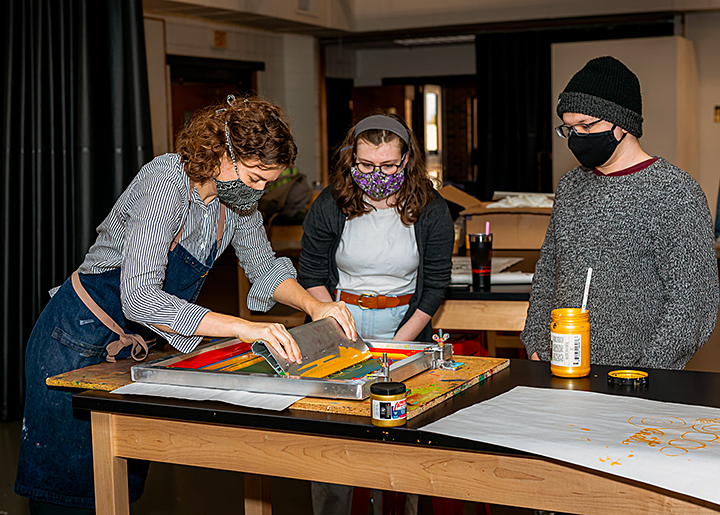
Homelessness remains a problem in Oklahoma City. OCU sits in what some may consider the heart of Oklahoma City, making this problem visible to its community.
Oklahoma City had a population of over 680,000 in 2020, according to a census performed each year by Oklahoma City. In that same census, Oklahoma City found that over 1,570 “countable” people were homeless, not including those in jail, in hotels, emergency rooms, treatment facilities, or those temporarily homeless who might be jumping from house to house.
“The extent to which we can play a role in helping the city address the homeless population I think would be something we would aspire to try to accomplish,” stated OCU President Kenneth Evans in the OCU Alumni Magazine.
“OCU helps with a variety of activities, including shirt screen-printing for local fundraisers, volunteer work with Positive Tomorrows as well as assisting with their annual Halloween costumes, and now the theater project on the homeless community, headed by theatre faculty member Daniel Stone. Fundraising through sales of t-shirts, helping on fundraising drives for Positive Tomorrows, and volunteer work by many of our faculty staff and students are certainly evidence of impact. All of these initiatives are ongoing and just the start of what I would like to see,” said Evans.
One of these recent projects was a Service-Learning art class, where students were able to participate in a collaboration with The Homeless Alliance Fresh stART program. The program was founded on the idea of helping people in the homeless community have a space to create art.
This determination to ease problems that result from homelessness is not just found in students. Councilman James Cooper, who serves as an adjunct professor has taken a stand against homelessness.
“Cooper’s leadership on MAPS 4 was valuable in the City Council. He really helped us get to a 9-0 unanimous vote,” said Oklahoma City Mayor, David Holt.
The MAPS 4 project has invested $50 million in affordable housing. This MAPS 4 initiative has been described as a “housing first” strategy and aims to help ease the problem of homeless.
OCU students, current and alumni, are taking on this crisis, but President Evans thinks that OCU as a community can do even more.
“I feel that OCU can play an integral part in this space and be a true partner to the local organizations that are already working with the homeless population. Any assistance must have a multi-pronged approach; homelessness is not a one-dimensional problem and requires 3 or even 4-D solutions. A more systematic initiative dedicated to advancing the understanding and possible next generation of tools and strategies to address the homeless condition is an important next step and one I would like to see the university embrace. It will take students, faculty, and staff working together to make that a reality,” Evans said.
“During my time at OCU, I have been studying the subject inclusive of visits with Mayor Holt, The Homeless Alliance, City Cares, and Positive Tomorrows. In addition, there is an extensive literature on the subject that has and continues to be reviewed. Before we wade in with any type of plan, I felt it very important to study the subject and OCU’s best ways to engage, always considering our capacity and our community’s safety. I am at a point where I would like to ask the campus community for their interest in participating in one or more organized initiatives,” said President Evans regarding his future plans to ease homelessness.


Leave a Reply